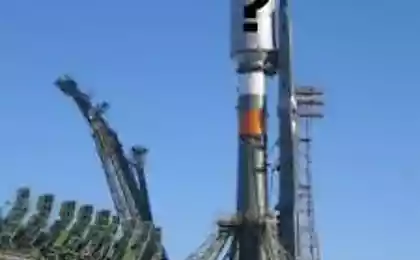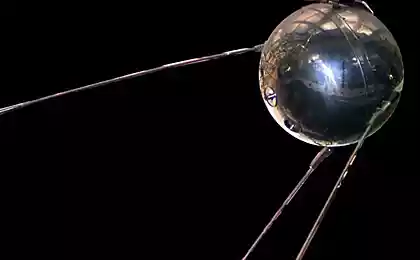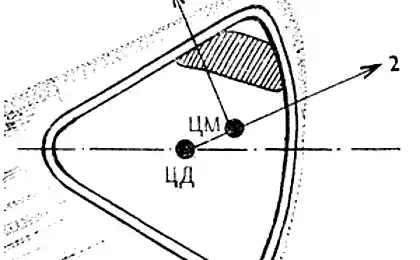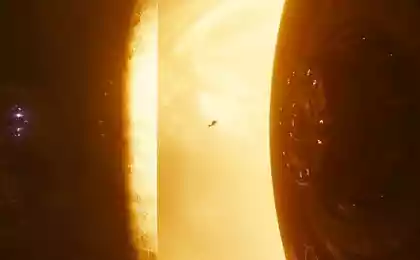1452
Manned space flight is not justified economically, scientifically.

"As a former astronaut and current director of NASA, I'm here to tell you that US leadership in space will continue for at least half a century because we have laid a solid foundation for success and we have no right to fail," - said on the eve of the completion of the space NASA shuttle program director Charles Bolden. What will determine the leadership in space Space in the XXI century? Will you create for this new manned spacecraft or practice launch a man into space thing of the past with the "cold war" and "flagovtykami" and robotic explorers in which NASA is really second to none, solve all the problems of humanity beyond Earth?
Completion of the shuttle program and the approaching end of life of the ISS is accompanied by a clear motivation crisis manned flights.
Continue to them only to maintain the prestige of a nation inappropriate: for them is to be found a new ambitious goal, otherwise they will be terminated.
Manned spaceflight much more unmanned. Additional costs (especially for long-term projects) are to ensure the relative comfort and, most importantly, human security in space, where he runs a cosmic radiation and the problems associated with weightlessness. This also should include the costs of preparing and cosmonauts, and content of the scientific staff.
Basic needs of unmanned space exploration much more modest. Approximately one can assume that
construction of an unmanned expedition costs twice cheaper than manned.
Absence aboard fragile in the face of the universe of the human body can significantly save.
Manned spaceflight, undoubtedly carries significantly more risk than unmanned - for the same reasons. If the flight is something goes wrong, to organize rescue operation is very difficult, if not impossible. Unmanned space program in any case, the risk only the loss of the spacecraft.
Manned space flight - very slowly evolving discipline. Due to the same risks during the research, development and training of crews is sufficiently large. To avoid any errors held huge amounts of computing, theoretical modeling of various situations. Unmanned space exploration is partly able to move through trial and error. The design of devices easier, they are controlled automatically, the time to develop them spend less.
Guided by objective criteria, it should be recognized that in the era of 50 years of space flight manned space program has not reached almost nothing (if not an achievement the fact of its existence, of course). The astronauts conducted the same experiments that successfully perform automatic stations, and available for their work "area" is extremely limited.
Unmanned missions much more successful: it is to them we owe a huge amount of data, which opened our horizons of understanding the universe.
Boundaries for them does not actually exist (remember the spacecraft Voyager, have left the solar system, as well as the probe Deep Impact, thrown on the comet), boundaries for further progress and development - as well. While the media talk about the shuttle, "union" and ISS, small unmanned vehicles - the workhorses of space - make important scientific discoveries. Today, most scientists agree that the International Space Station and the manned program unproductive for space science.
Many research programs for ISS came to nothing: for example, its orbit was too low for growing large crystals ideal - it still "feels" the Earth's gravity.
During the work station for more than 20 scientific organizations withdrew from the project, carried out on it to redirect resources to more promising unmanned mission.
Back in 1998 the launch of every human into orbit was worth about $ 420 million, thus manned space program can be called the most expensive PR campaign in the history of mankind. To illustrate the high cost of the shuttle launch Dr. Francis Slack, a columnist for Scientific American, used while the following example: "The cargo bay of the shuttle is able to lift into orbit 24 tons of cargo and return to Earth 14, 5 tons of cargo. Imagine that NASA cargo bay filled with confetti and launch it into space.
Even if during the flight of the shuttle confetti no residue will turn to gold, the loss of this mission still be $ 270 million ».
Proponents of manned spaceflight sure that it is necessary to maintain interest in space and ensure stable funding for space programs. However, as mentioned above, one such "advertising" start eating up funding for two "target" scientific launches. And lighting NASA activities "Hubble" telescope, whose work is extended just because of the broad support of society, shows that unmanned mission can be successful in the eyes of the public (although the "Hubble" still had a "human factor" - the astronauts was repeatedly repaired and upgraded).
Another "excuse" manned missions may be space tourism - he, at least, to remove a significant portion of the budgets of the material load.
That is why the United States with the hope of looking at the development of private initiative in bringing human cargo into Earth orbit.
These ships do not give a fundamentally new opportunities, but their cheapness declared in conjunction with commercial use significantly reduce the cost of "PR actions" manned flights.
Anyway, in the next 10 years, we know, according to the humanity continue to pay for the PR space: after the close of the ISS project, willy-nilly will have to make a serious choice.
Generated record magnetic field of 91 Tesla 4
Space agency NASA has published on its website a unique photos




















